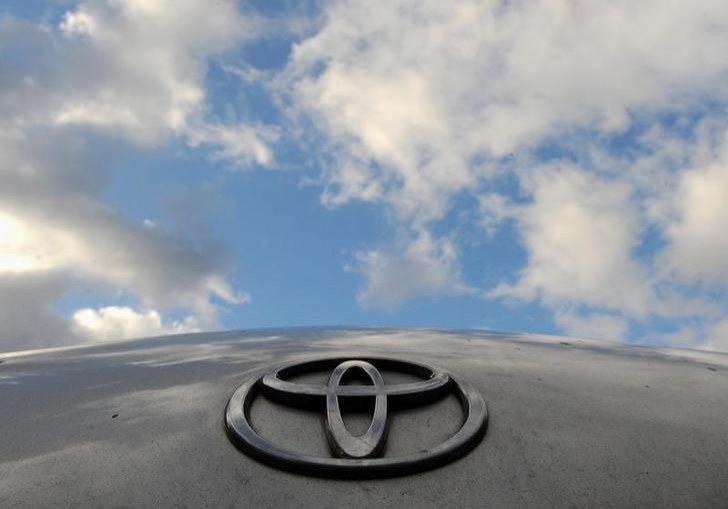July 2013 U.S. Auto Sales: Japanese Big Three -- Toyota (TM), Honda (HMC), Nissan (NSANY) -- Saw A Combined Average Increase Of 16.4%, Higher Rise Than Detroit 3 On Lower Volume

Japan’s top three auto makers said Thursday they sold more than 443,874 vehicles in the U.S. last month for a combined average sales increase of 16.4 percent compared to the year-ago period, beating the Detroit Three average in percentage sales increase but not on volume.
American Honda Motor Co., the U.S. unit of Honda Motor Co Ltd (TYO:7267), edged past Chrysler Group LLC (click here for its July performance) in July with 141,439 units -- a 20.9 percent increase from last year -- on robust demand for their top-selling sedans. Honda beat the forecast from the auto intelligence providers TrueCar.com, Edmunds.com and Kelley Blue Book, all of whom expected the company to report sales below 140,000.
"In July, all of our core models -- Civic, Accord, Odyssey and CRV -- showed double-digit gains," said John Mendel, executive vice president of sales at American Honda.
The Accord and the Civic saw sales topping 30,000 units for the month while the Civic broke a 13-year July sales record. The CR-V crossover topped 27,000 units on a 32.5 percent rise from the same month last year. This demand for Honda’s sedan and compact was in line with Ford’s results, which saw strong retail hunger for its trio of smaller models: Fiesta, Focus and C-MAX.
The company’s higher-led Acura division topped an 18 percent sales increase from last year thanks to increasing interest in luxury crossovers.
“Acura benefited from the fact that its all-new MDX crossover SUV came into the market in the midst of a revived interested in SUVs and trucks,” said Jack R. Nerad, senior analyst at Kelley Blue Book.
Toyota Motor Sales, U.S.A., Inc., the wholly owned unit of the world’s top automaker by sales volume, Toyota Motor Corporation (TYO:7203), came within 321 vehicles of matching its American rival Ford’s sales volume in July. The Japanese auto giant saw sales rise 17.3 percent to 193,394 units, essentially in line with analysts’ estimates.
U.S. sales of the Corolla, the world’s top selling sedan, increased 3.5 percent to 24,463 units. The Camry, the best-selling sedan in the U.S., came in with a 16.3 percent increase to 34,780 units.
"Toyota Camry held on to the top spot in the top selling segment in the country but it came with a price,” said Edmunds.com senior analyst Jessica Caldwell. “Camry incentives are at its highest level in nearly two years and were four times more than its biggest rival, Honda Accord.”
Honda is notoriously tight with its incentive spending -- the money automakers spend offering rebates and low-interest loans to encourage sales, which whittles down profit margins. Both Toyota and Honda consistently rank low in incentive spending compared to their industry peers. Last month, Toyota spent an average of $1,945 per unit sale on incentives compared to $1,092 for Honda, according to Edmunds. The average of the top automakers is $2,463.
Toyota had a higher transaction rate, the average closing price for each vehicle sold, than Honda in July: $29,139 versus $27,208.
Nissan North America Inc., the local unit of Nissan Motor Co., Ltd. (TYO:7201), sold 109,041 vehicles, a 10.9 percent increase led by a July record for the Altima sedan, the Pathfinder SUV and the Rogue crossover.
“Nissan is reaping the benefits with its recently redesigned Pathfinder, and its July sales numbers are confirming this as car shoppers are giving a positive nod for the model,” said Alec Gutierrez, senior analyst at Kelley Blue Book.
Nissan led the Japanese automakers in incentive spending to get these sales, dishing out an above-industry average of $2,748, according to Edmunds.
Combined, the Detroit Three and the three top Japanese automakers sold more than a million cars and trucks in the U.S. in July. Total light vehicle sales in the U.S. last month was 1.32 million, according to motor intelligence.
Click here for the following results: Chrysler, Ford, GM and the combined Detroit Three, Volkswagen.
© Copyright IBTimes 2024. All rights reserved.






















